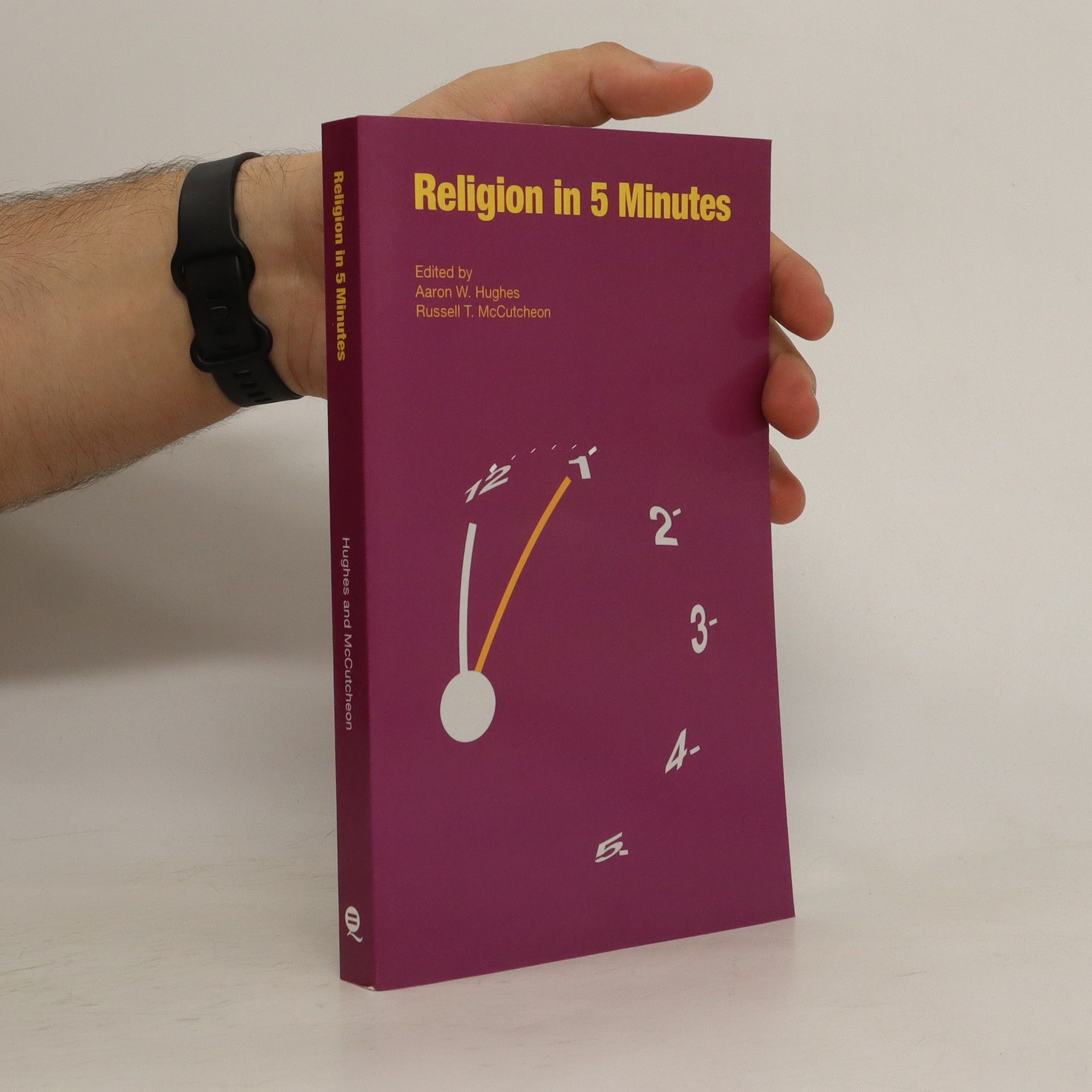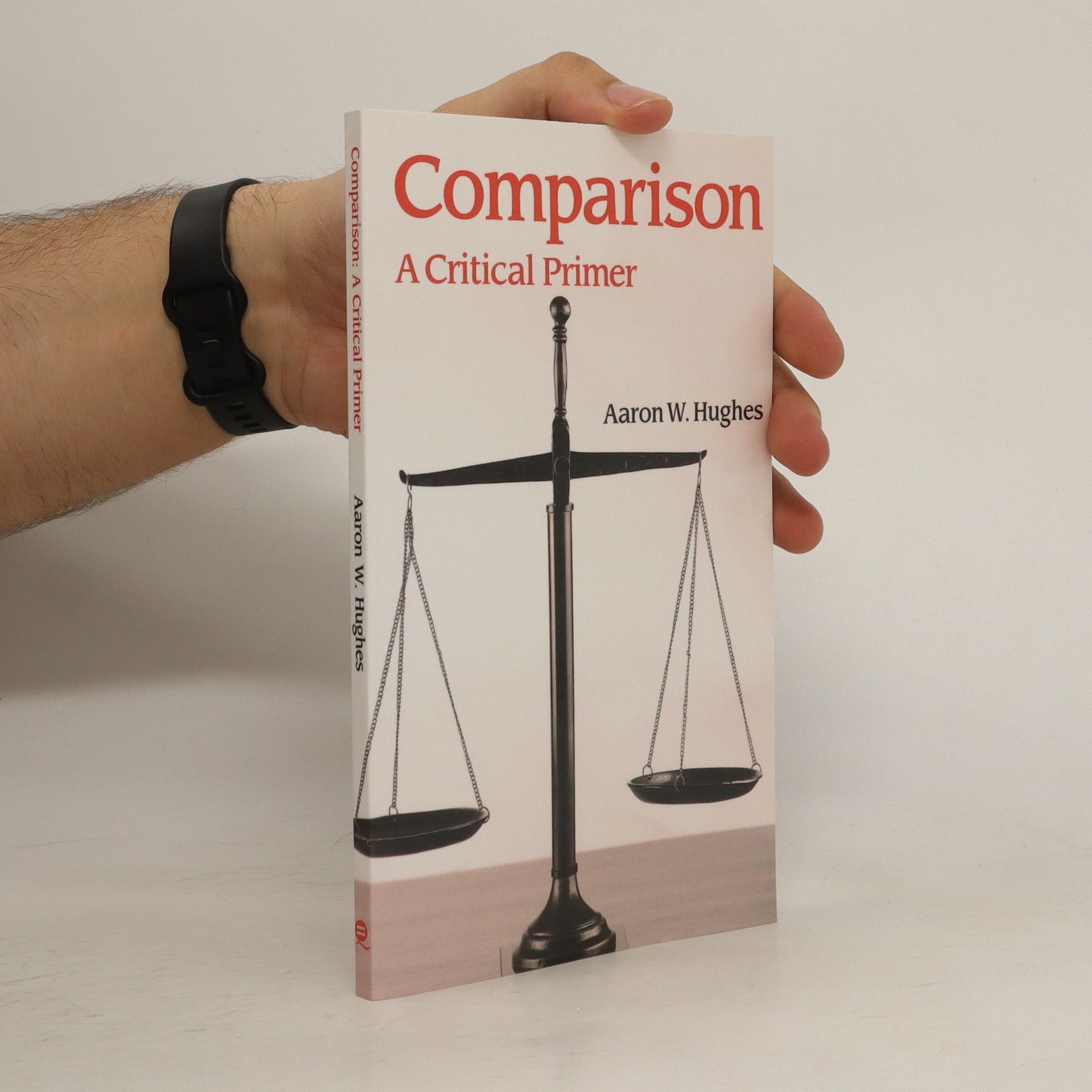Focusing on the diverse social groups within Islam, this introduction offers a balanced view by incorporating both insider and outsider perspectives. It aims to avoid the extremes of apologetic narratives and Orientalist interpretations, providing readers with a nuanced understanding of Muslim identities and the complexities of the religion. The updated content ensures relevance and depth, making it a valuable resource for those seeking to grasp the multifaceted nature of Islam and its followers.
Aaron W. Hughes Livres






This book is the first of a two-volume work that seeks to transform the study of religion by offering a radically critical perspective. It does so by providing a succinct and critical examination of the key words used in the modern study of religion.
Somewhere Between Islam and Judaism is of interest to scholars and students of religion concerned with comparison and those studying Islam, Judaism and Jewish-Muslim relations.
Religion in 50 More Words: A Redecriptive Vocabulary provides a succinct historical, social, and political examination of some of the key words used in the modern study of religion. Differing from the first volume's more theoretical focus, this volume analyzes more common first order descriptive terms that are used throughout the field, inviting readers to theorize their traditional vocabulary. Topics covered include: - Atheism/Theism - Authority - Ceremony - Conversion - Cult - Evil - Faith - Fundamentalism - Idol - Magic - Pilgrimage - Ritual - Sacrifice - Scripture - Superstition - Tolerance - Worship Religion in 50 More Words submits such terms to a critical interrogation and subsequent redescription. This paves the way for a collective and more critical reframing of the field. The volume, along with Religion in 50 Words, provides an indispensable resource for students and academics working in the field of religious studies and related disciplines.
"What events, issues, and personalities have shaped modern Canada? Which days stand out in the timeline of our country? Revisiting ten notable days from recent history, Aaron W. Hughes invites readers to think about the tensions, achievements, and people that make Canada distinctive. These indelible dates interweave to offer an account of the political, social, cultural, and demographic forces that have shaped the modern nation. Diverse episodes include the enactment of the War Measures Act, hockey's Summit Series, the patriation of the Constitution, the Multiculturalism Act, the École Polytechnique Massacre, victories for gay rights, Quebec's second referendum on secession, The Tragically Hip's farewell concert, the Truth and Reconciliation Commission, and ongoing Black equality struggles. Each day represents a window on contemporary Canada, jumpstarting reflection and conversation about who we are as a nation and how we got here. Ten Days That Shaped Modern Canada is the perfect guide for all those curious about the forces that shape our country and about how we understand our place in the world."-- Provided by publisher
Religion in Five Minutes provides an accessible and lively introduction to the questions about religion and religious behaviour that interest most of us, whether or not we personally identify with - or practice - a religion. Suitable for beginning students and the general reader, the book offers more than 60 brief essays on a wide range of fascinating questions about religion and its study, such as: How did religion start? What religion is the oldest? Who are the Nones? Why do women seem to play lesser roles in many religions? What's the difference between a religion and a cult? Is Europe less religious than North America? Is Buddhism a philosophy? How do we study religions of groups who no longer exist? Each essay is written by a leading authority and offers succinct, insightful answers along with suggestions for further reading, making the book an ideal starting point for classroom use or personal browsing.
This book starts with the premise that while there are good comparisons and bad comparisons, what is common to both is the sheer artificiality of the enterprise. It then develops an analytical framework for using the method in the context of religious studies.
